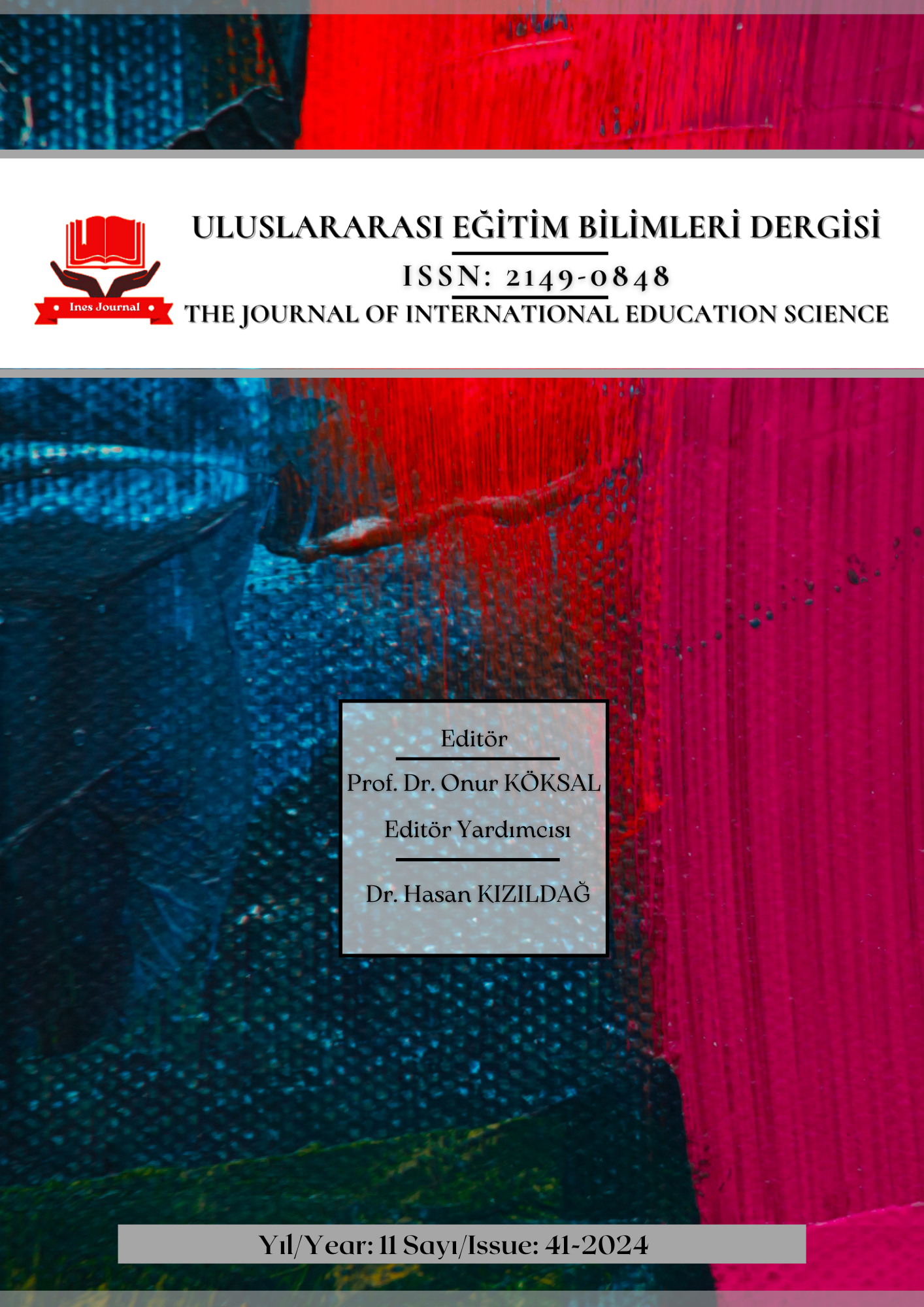Mütercim Tercümanlık Bölümü Öğrencilerinin Tüketim Yönelimli ve Öğrenen Kimlik Düzeyi ile Mesleki İlgi Düzeyi İlişkisinin Belirlenmesi
Author :
Abstract
Yükseköğretim çatısı altında devlet ve vakıf üniversitelerinin sayısının giderek çoğalması, öğrencilerinde bir tüketici gibi davranış geliştirmesine ve bu kurumlarında tüketici yönelimli davranışlara yönelmesine sebep olmuştur. Tüketici yönelimli bir davranış sergileyen öğrenciler, ödedikleri harç ve ücretlerin karşılığı olarak nitelikli bir eğitim hizmeti alma ihtiyacı ve beklentisi içerisinde çeşitli üniversitelerde ilgili bölümlerini tercih etmektedir. Ayrıca üniversite sürecinde almış olduğu eğitimden memnun olup olmaması olmasıyla öğrencinin tüketici yönelimli davranışını oluşturmaktadır (Goulay ve Stevenson,2017). Bu çalışmada, Edebiyat Fakültesi Mütercim ve Tercümanlık Bölümüne kayıtlı öğrencilerinin tüketici yönelimli ve öğrenen kimlik düzeyleri ile mesleki ilgi düzeylerinin belirlenmesi; tüketici yönelimli ve öğrenen kimlik düzeyleri ile mesleki ilgi düzeylerinin ilişkisinin değerlendirilmesi amaçlanmıştır. Bu doğrultuda araştırmanın evrenini, 2023-2024 eğitim-öğretim yılında Mütercim ve Tercümanlık Bölümünde öğrenim gören lisans öğrencileri planlanmış olup araştırmanın örneklemini gelişigüzel yöntem ile seçilmiş 326 kişi ile gerçekleştirilmiştir. Araştırmada veri toplama yöntemlerinden anket tekniği kullanılmış olup, anketler yüz yüze ve online ortamdan toplanmıştır. Araştırma sonuçlarına göre katılımcıların Tüketim yönelimli öğrenen kimlik düzeyi puan ortalaması ile ve mesleki ilgi puan ortalamaları karşılaştırıldığında; tüketim yönelimli öğrenen kimlik düzeyi ölçeği toplam puan ortalaması ile mesleki ilgi ölçeği toplam puan ortalamaları arasında pozitif yönde orta derecede bir ilişki olduğu (r: 0,615; p<0,05) belirlenmiştir Başka bir ifade ile tüketim yönelimli öğrenen kimlik düzeyi ölçeği toplam puan ortalaması arttıkça mesleki ilgi ölçeği toplam puan ortalaması artmaktadır. Aynı zamanda tüketim yönelimli öğrenen kimlik düzeyleri puan ortalaması (β= 0,324; p<0,001), mesleki ilgi puan ortalamasını pozitif ve anlamlı ilişki olduğu belirlenmiştir (r: 0,253; p<0,05). Üniversite öğrencilerinin tüketim yönelimli öğrenen kimlik düzeyleri artması, mesleki ilginin oluşumunda ve kendini geliştirmesinde olumlu yönde etkileyebileceği söylenebilmektedir. Ayrıca yabancı dil eğitiminin esas alındığı bölümlerde öğrencilerin gelişimi için hem akademik hem de mesleki ilginin önemli bir unsur olduğu ortaya çıkmaktadır. Bu nedenle var olan durumun saptanmasıyla mesleki ilgisi yüksek ya da düşük olan öğrencilerin sınıf bazında değerlendirilmesine, akademik ya da mesleki anlamda öğrencilerin yönlendirilmelerine katkı sağlayacağı ve farklı bir bakış açısı kazandıracağı düşünülmektedir.
Keywords
Abstract
The increasing number of public and private universities under the umbrella of higher education has led students to develop consumer-oriented behaviors, and these institutions have also begun adopting consumer-oriented approaches. Students exhibiting consumer-oriented behavior tend to choose specific programs at various universities with the expectation and need for a high-quality educational service in exchange for the tuition and fees they pay. Furthermore, students' satisfaction or dissatisfaction with the education they receive during university studies contributes to shaping their consumer-oriented behavior (Goulay & Stevenson, 2017).
This study aims to determine the consumer-oriented learner identity levels, learner identity levels, and vocational interest levels of students enrolled in the Faculty of Letters, Department of Translation and Interpreting. Additionally, it seeks to evaluate the relationship between consumer-oriented learner identity levels and vocational interest levels. The study population consists of undergraduate students enrolled in the Department of Translation and Interpreting in the 2023-2024 academic year, with a sample of 326 participants selected through a random sampling method.
The data collection method employed was the survey technique, with surveys administered both face-to-face and online. According to the results of the study, when the mean scores of the consumer-oriented learner identity levels and vocational interest levels of the participants were compared, a positive moderate correlation was found between the total score of the consumer-oriented learner identity scale and the total score of the vocational interest scale (r = 0.615; p < 0.05). In other words, as the total score of the consumer-oriented learner identity scale increased, the total score of the vocational interest scale also increased. Additionally, the mean score of consumer-oriented learner identity (β = 0.324; p < 0.001) was found to have a positive and significant relationship with the mean score of vocational interest (r = 0.253; p < 0.05).
It can be inferred that the increase in consumer-oriented learner identity levels among university students positively influences the development of vocational interest. Moreover, it becomes evident that both academic and vocational interests are essential for developing students in programs where foreign language education is fundamental. Therefore, identifying the current status can contribute to evaluating students with high or low vocational interest at the class level, guiding them academically and vocationally, and offering a different perspective.





